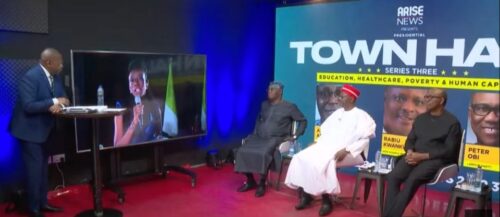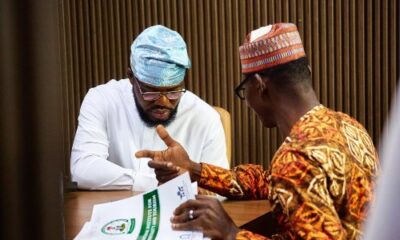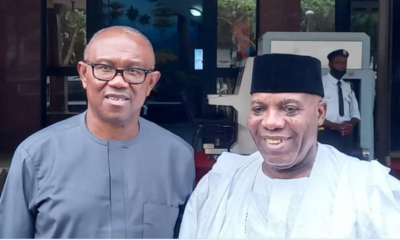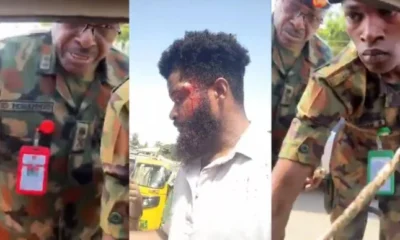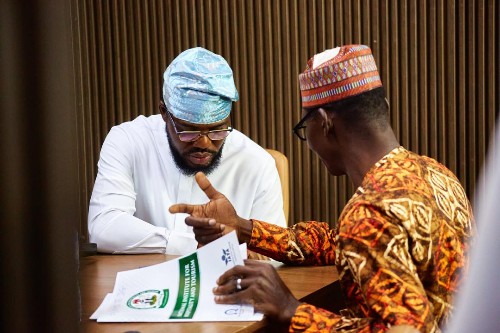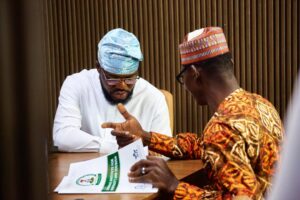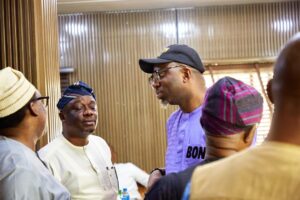The presidential candidates of the Peoples Democratic Party, Atiku Abubakar, and his counterparts, from the Labour Party, Peter Obi, and New Nigerian People’s Party, Rabiu Kwankwaso, have proffered their respective solutions to the incessant strike actions by lecturers of public universities in the country.
They also promised to increase investments in the education sector to reverse the growing number of out-of-school children in the country and revitalize the health sector.
The candidates spoke on Sunday during the Arise TV presidential town hall series on ‘Education, healthcare, poverty and human capital’.
Atiku noted that the government should work with relevant agencies to avoid a bottleneck in the funds earmarked for the education sector in a bid to end the constant strike actions of the Academic Staff Union of Universities.
He said, “In terms of their arrears and their salary structure, the government must be prepared to invest more in the running of our universities. And then, we should also avoid a bottleneck in getting these funds to the right places which are the universities.
“In the current structure, there is a bottleneck. When the government releases funding to the universities it goes into another agency of the government and that agency now stifles the universities from getting this funding; forget about whether the fund is sufficient or not.
“Let me give you an example when I was vice president, I enlisted a few foreign missions, I found out that they were not receiving their salaries and allowances and were not paying remittances for months and I called the Minister of Finances then. Each embassy submitted its budget and after it was approved, we now started wiring these monies right to these embassies. The people did not like this, but it was the right thing to do.”
Obi, in his contributions, lamented that the country’s investment in education is low compared to other nations, adding that the government needed to go back to its agreement with the ASUU and design a sustainable funding mechanism.
He said, “Our investment in education is low compared to comparable countries. In six years, our total investment in education by the FG is about N3.6 trillion. That is not up to South Africa which is the second-biggest economy and about the same year. In 2020, their budget for education is 380 billion Rands. If you convert this, you will see the difference, so, we need to invest in education.
“Overall, the funding of tertiary institutions needs to be restructured. We need to bring a lot of mix where the government will contribute, we have from the private sector who need this product to contribute. It is not something I believe the FG can continue to fund the way they are funding it.
“All they need now is to go back to the agreement, clear the backlog and then design a sustainable funding mechanism. It is very easy, we learn from what is happening in other countries of the world.”
In his contribution, Kwankwaso stated that his party’s blueprint addresses the issues raised by ASUU.
“In our case, we will do whatever it takes, not only to do the budget but to keep our eyes on the budget so that money goes down so that everybody will get his salary. So, we will do whatever it takes really, to put the money and not only that to keep our eyes on the money so that everybody benefits in the sector.
“And I can assure you that in our manifesto, all those issues raised by ASUU, were addressed, especially the issue of ensuring that these universities are upgraded or improved, and are taken to the best international practice before we start fully operating the other universities and other tertiary institutions across the country. So we’re on the same page with ASUU, if you look at our blueprint again,” he stated.
On how he will solve the issue of out-of-school children, especially in the north, Atiku stressed the need for more funding and investment.
“I tried to do this when I was vice president, particularly in the northern states. I commissioned a special study which was made by a committee led by a foremost educationist and as a result of that, we produced a handbook on how the northern states can catch up as far as education is concerned.
“It requires more investment like Peter said. We are not investing enough in education. And because it particularly involves the northern states, I called the northern governors in Kaduna and gave them a copy of the report and how to implement it, but not a single one of them implemented it. Then we did not have a way we could force them due to the authority sub-regional areas had in the constitution, we could only advise them, so it requires much investments and funding.”
In his contribution, Obi said, “Throughout these six years, our budget in education is not up to 10 percent. With the level of people we have out of school, for me, I think we can have a budget differently.
“If we work hard, I believe Nigeria can if we pluck all revenue we should able to get money running into trillions. We are going to invest in education and we are going to do whatever is possible to ensure we do what is possible to get those people back to school.”
On his part, Kwankwaso stated that he believed that more investments should be made in education.
He said, “We will encourage private people to set up facilities primary, secondary, and tertiary. I have to thank Waziri (Atiku), he has a university, which is another good thing. The only thing is that he should try and make the fees and so on much lower so that our team and supporters, as many as possible, can join the university.”
As regards healthcare, Atiku said, “What is required is the basic health centres to cater for the greater population of our people. This is where we need to focus as far as our health is concerned.
“We will need to sit down with the private sector and let them know that we want them to invest in the sector, and we are prepared to give you incentive. It requires a dialogue with the private sector because it is even those who go outside don’t go to the public hospital, they go to the private hospital.
So, if we give the private sector the incentive they need, they will build. I believe Nigeria’s private sector is very active in this country.”
Obi also called for an increase in investment in the country’s healthcare.
“We need to increase the investment we have in health care. Our total budget in the past six years for health is about two trillion, and two hundred and fifty billion naira for a country of 250 million, that’s unacceptable.
“We need to deal with the issue of primary health care, especially in the north where we have passed Indian in the issue of mortality. We need to invest in primary health care and invest in the training of the manpower. There is no reason why we should not have a school of nursing and midwifery in every local government.”
On how to stop medical tourism, Kwankwaso said, “We need to do two things: One is putting our house in order by improving the government-owned institutions. Two is to encourage private sector participation. Leaders also need to set a good example and seek treatment at home.”

 BIG STORY9 hours ago
BIG STORY9 hours ago
 BIG STORY1 day ago
BIG STORY1 day ago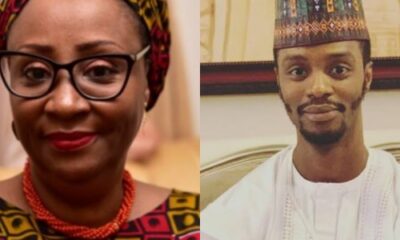
 BIG STORY10 hours ago
BIG STORY10 hours ago
 BIG STORY1 day ago
BIG STORY1 day ago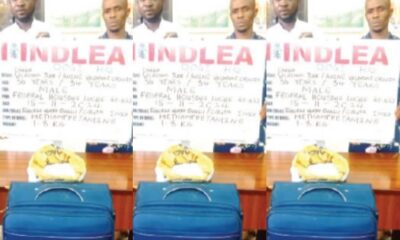
 BIG STORY2 days ago
BIG STORY2 days ago
 BIG STORY5 days ago
BIG STORY5 days ago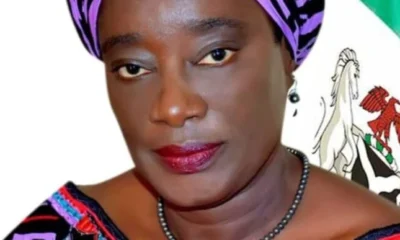
 BIG STORY1 day ago
BIG STORY1 day ago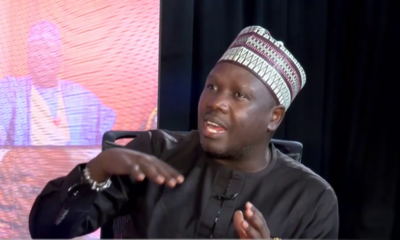
 BIG STORY1 day ago
BIG STORY1 day ago




